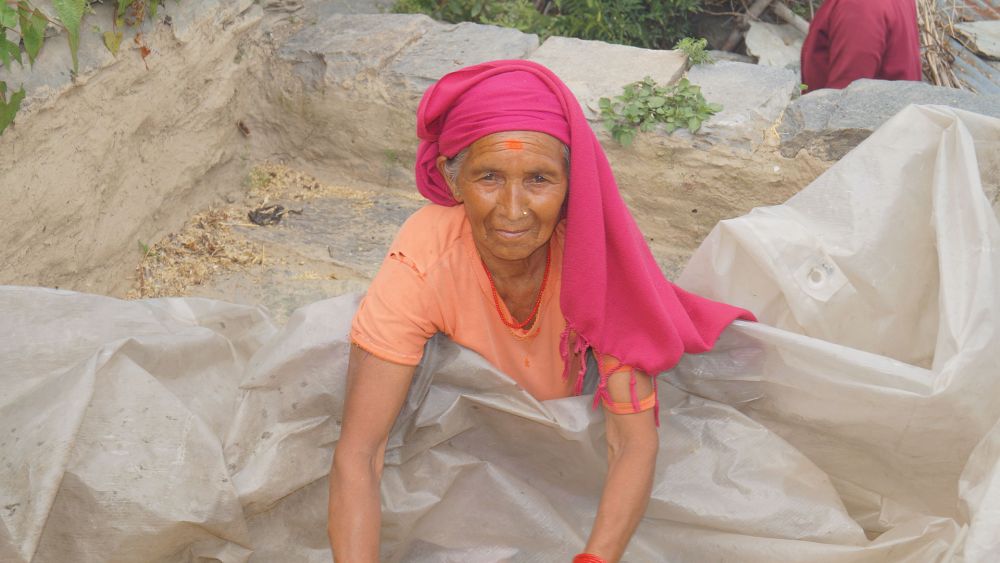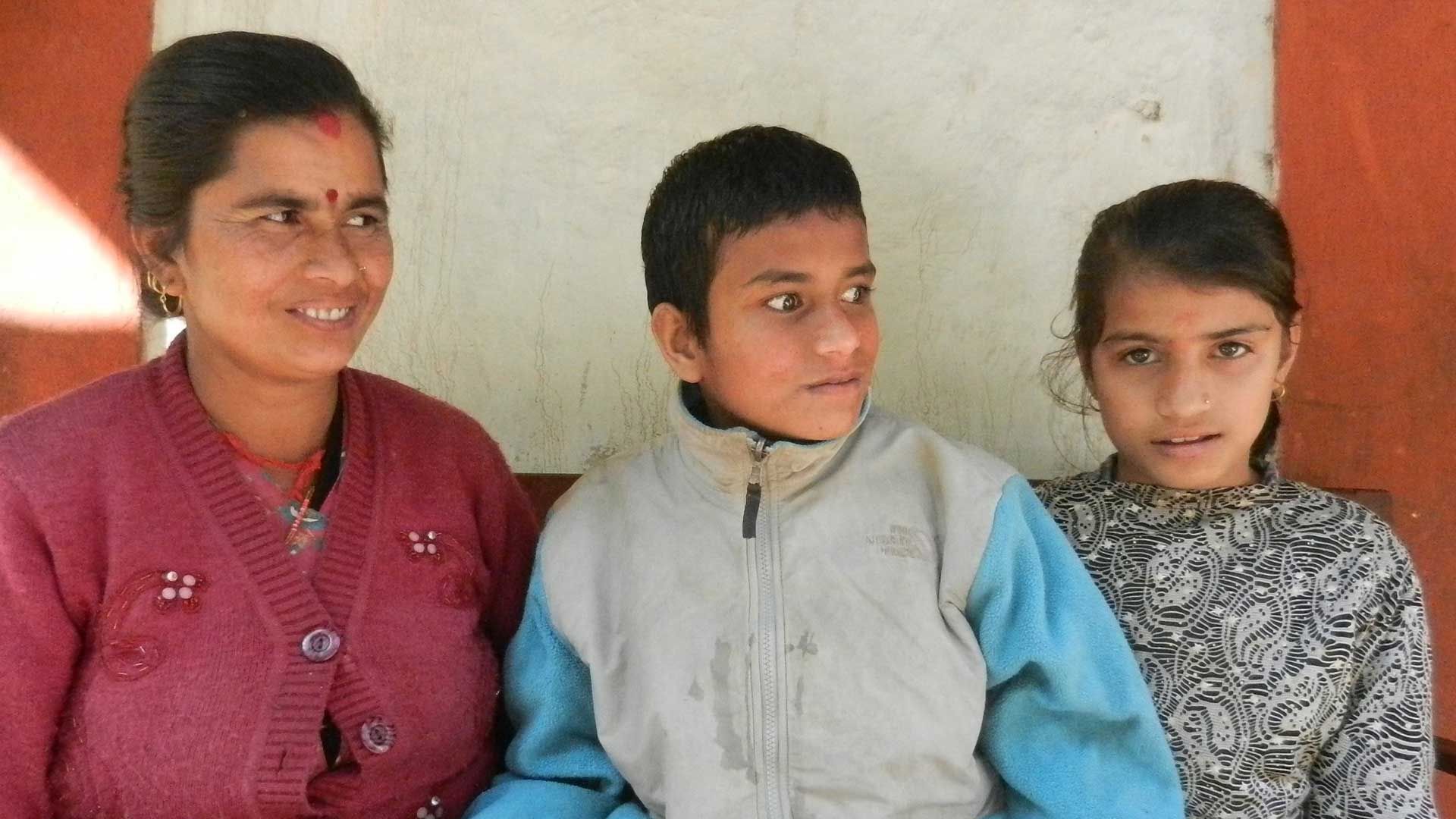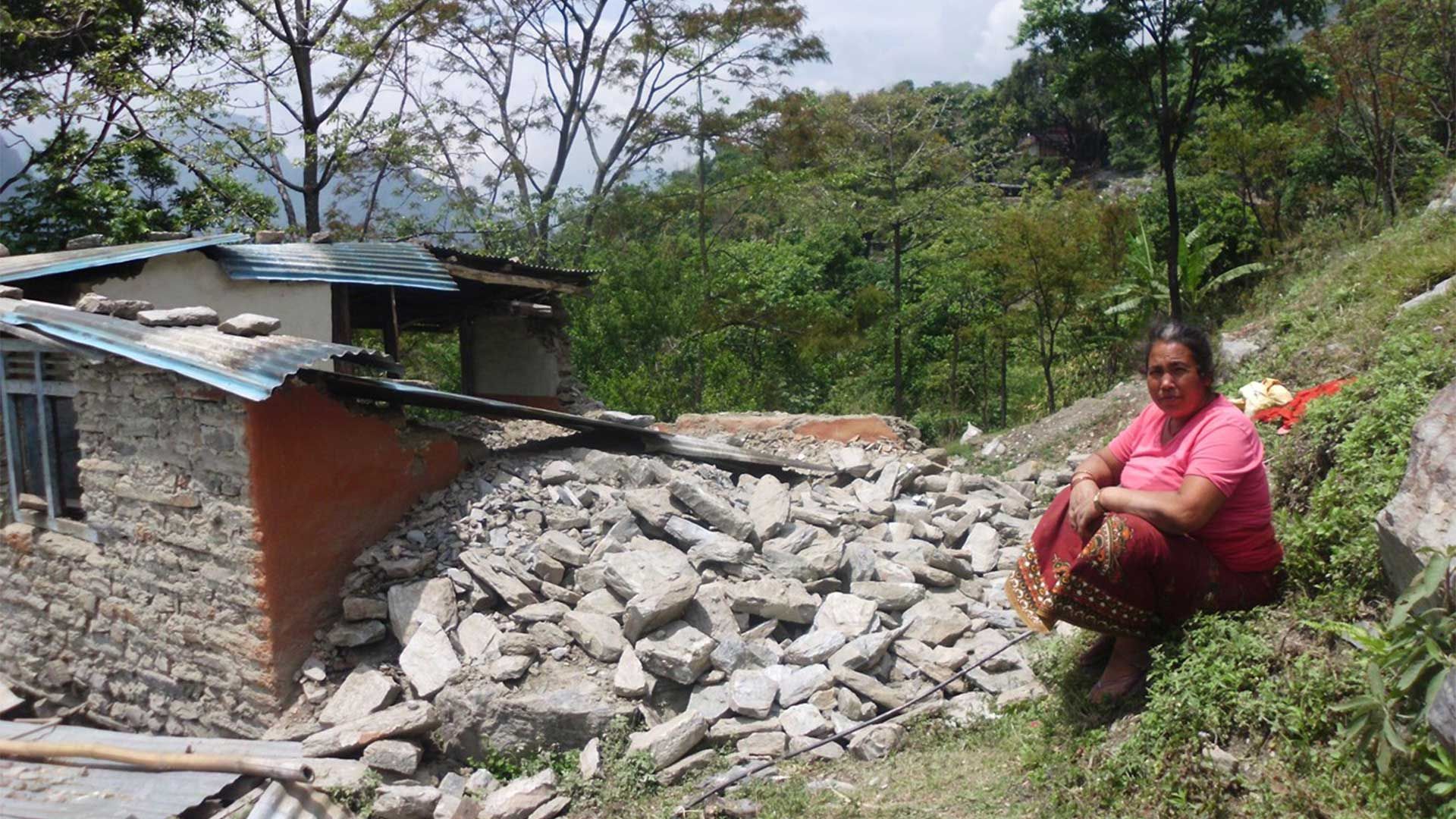Completed Projects: Nepal
Carers To Carers: Empowering Unpaid Family Carers In Nepal

-
Location
Kathmandu Valley, Nepal -
Project Dates
April 2024 – March 2025 -
Project Partners
Self-Help Group for Cerebral Palsy, Nepal -
Funder
The James Tudor Foundation, CareTech Foundation, Individual donors from our 2023 Festive Appeal
We rely on your help to continue our work supporting carers in Nepal. Please donate today using the button below:
Our survey of 334 carers in the Kathmandu Valley revealed that 69% of these carers had their own health problems, and less than half of this number were receiving treatment. Just 20% were accessing community groups where they could be provided with basic health information.
Once fully trained, each Volunteer Health Worker worked with 25 unpaid carers within their community, supporting their health and well-being through regular home visits. They received an allowance to cover any expenses.
You can read more about the project on our blog.
As a result of this project, 250 carers in the Kathmandu Valley benefited from:
- Learning to meet their own basic health needs
- Increased self-care arising from increased knowledge of hygiene and nutrition
- Enhanced access to healthcare services
- Improved mental health due to regular empathetic support and a sense of community
- Improved knowledge of neurological conditions and their impacts
- Experience in basic physiotherapy
- Understanding of how to manage common health and medical issues
Community Caring Centres

-
Location
Kathmandu Valley, Nepal -
Project Dates
April 2020 - March 2024 -
Project Partners
Self-Help Group for Cerebral Palsy, Nepal -
Funder
Souter Charitable Trust, Light Fund, Cumber Charitable Trust
We rely on your help to continue our work supporting carers in Kathmandu Valley, Nepal. Please donate today using the button below:
Telephone Helpline Providing Information, Advice And Emotional Support

-
Location
18 districts across Nepal -
Project Dates
December 2021 – June 2024 -
Project Partners
Self-Help Group for Cerebral Palsy, Nepal -
Funder
Philanthropist
We rely on your help to continue our work supporting carers in Nepal. Please donate today using the button below:
Promoting Social And Economic Empowerment Of Carers

-
Location
Baglung and Myagdi, Nepal -
Project Dates
April 2019 – March 2021 -
Project Partners
LEADS Nepal -
Funder
UK Aid Direct
We rely on your help to continue our work supporting carers in Baglung and Myagdi, Nepal. Please donate today using the button below:
This project had a specific focus on advocacy and the economic inclusion of carers with the aim of strengthening and empowering, predominately female, carers in both the civil society space and in their immediate communities. By the end of the project, we had strong, fully fledged CAs who could independently advocate for the rights of carers, and CCs who could facilitate opportunities and economic security for carers.
The CAs were recognised as the collective voice of a hitherto vulnerable group, bringing carers into the local government and community agenda and ensuring this neglected group can come out of their homes, be socially and economically empowered, continue to provide the quality care their ill relatives require, and together bring their families and communities out of poverty.
Quantitative research was conducted in June 2019 and published in December 2019 that assessed the extent to which Carers Associations and Carers Cooperatives empower predominately female carers in Baglung and Myagdi. You can read ‘Carers: Choice and Control’ which is the published report for this research.
Care For Carers

-
Location
Kathmandu Valley, Nepal -
Project Dates
November 2016 – July 2021 -
Project Partners
Self-Help Group for Cerebral Palsy, Nepal -
Funder
National Lottery Community Fund
"This project has shown us the way to having our voices heard and recognised. We will work hard to make it sustainable."
We rely on your help to continue our work supporting carers in Kathmandu Valley, Nepal. Please donate today using the button below:
This project promoted the social, emotional, medical and economic well-being of unpaid carers, mostly mothers, of children with Cerebral Palsy and other neurological disorders living across the Kathmandu Valley.
Many of the carers targeted in this project had their livelihoods and properties destroyed in the earthquakes that devastated the region in 2015. As carers, they were often restricted to the home, isolated from society and unaware of their rights so they did not realise that they could have accessed government and NGO support in the weeks and months that followed the earthquake.
The purpose of this project was therefore to raise awareness of carers and their rights, and to establish carer-friendly services that can empower this vulnerable community of carers.
Our Baseline Study Report ‘Caring for Carers of Children with Cerebral Palsy in Nepal’ provides a full breakdown on the needs and problems facing carers in this project.
Key findings from the report include:
-
97% of carers are women and 94% are mothers
- 63% of carers are not earning an income (although 97% are of working age)
- 16% of the households of carers have nobody earning
- 41% of carers were unable to take a break from caring
- 68% of carers reported feeling isolated or lonely
- 75% of carers had significant concerns about their financial situation
- 72% of carers had physical health concerns
- 76% of carers reported significant anxiety
- 55% of carers experienced chronic lack of sleep (a significant factor affecting the wellbeing of carers)
Key highlights and achievements from the first three years of the project were:
- 391 carers lives impacted
- 23 local self-help groups and 5 Cluster-Level committees set up
- Carers Day celebrated for the first time in Kathmandu
- 11 local doctors trained on the needs of carers
- 3 health camps held with a total of 78 carers being assessed and starting necessary treatment
- Counsellors visiting all of the carers groups
- SGCP staff being trained in barefoot counselling
Improving The Physical And Mental Health, Promoting Social Inclusion

-
Location
Baglung and Myagdi, Nepal -
Project Dates
July 2014 – June 2017 -
Project Partners
LEADS Nepal -
Funder
UK Aid Direct
We rely on your help to continue our work supporting carers in Baglung and Myagdi, Nepal. Please donate today using the button below:
The results of our baseline survey conducted at the start of the project showed that 25% of carers were isolated, 69% experienced physical health problems, 77% were depressed or anxious and 97% of carers and their households lived below the poverty line.
As well impacting the lives of carers, this project had a significant impact on the relatives for whom they care and other members of their households as a result of sustainable increases in household income, improved wellbeing of the carer and greater awareness amongst community members and local professionals about the vulnerability of carers.
- 57 support groups were created, bringing together 870 carers for emotional support and local advocacy activities
- 473 local professionals and volunteers were trained and are now assisting carers in accessing counselling and medical support
- 994 carers were trained in livelihoods that can co-exist with their caring responsibilities
- 10 Community Caring Centres were established to provide respite care
- 285 child carers were reintegrated into school
- 2 District-Level Carers Associations and 2 Carers Co-operatives were formed to raise the voice of carers to local government and stakeholders
Significantly, at the conclusion of the project, 88% of the families involved in the project reported having regular incomes that lifted them above the poverty line (compared to 3% at the start of the project). 67% of carers reported that their health needs were reducing and 55% had alternative care options available to them.
Our work with LEADS Nepal continues in the project districts, and the carer-led Carers Associations and Carers Co-operatives continue to go from strength to strength.
Action For Carers

-
Location
Kaski & Syangja, Nepal
-
Project Dates
January 2016 – December 2016 -
Project Partners
LEADS Nepal -
Funder
James Tudor Foundation
"A year ago we were alone. Now we are supported and included. I have a vision for my daughter’s future now."
We rely on your help to continue our work supporting carers in Kaski & Syangja, Nepal. Please donate today using the button below:
17 carers groups were formed, bringing together 162 carers to discuss their needs, develop alternative care options for each other and make representation to local government officials. To ensure sustainability, 18 local health volunteers were trained to enable these groups and activities to continue after the project had ended.
122 carers took up a range of new livelihoods activities such as goat and chicken rearing, increasing household income and enabling them to meet the financial needs of their loved ones such as purchasing vital medicines. Engagement in income generating activities also resulted in promoting the carers’ sense of self-esteem. 50 child carers returned to school, helped by teachers who were specially trained by the project to understand and support them.
Earthquake Relief

-
Location
Baglung and Myagdi, Nepal -
Project Dates
April 2015 – March 2016 -
Project Partners
BasicNeeds & LEADS Nepal -
Funder
Scott Bader Company Limited & Individual Donors
We rely on your help to continue our work supporting carers in Baglung and Myagdi, Nepal. Please donate today using the button below:
- Relief supplies (food, water, tents, blankets and emergency medicines) to residents in our project villages
- House rebuilding/repair for 20 families
- Psychosocial support (medicines and counselling) to over 700 individuals with existing or newly emerging mental ill-health and their carers
- Disaster-preparedness training to residents in 20 project villages